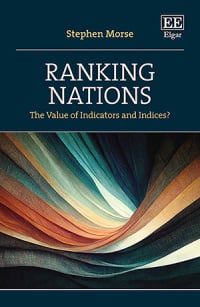Hardback
Ranking Nations
The Value of Indicators and Indices?
9781800886308 Edward Elgar Publishing
This engaging book assesses the statistical need for using particular ranking systems to compare the status of nations. With an overarching focus on human development, environmental performance and corruption, it carefully maps out some of the main processes associated with the ranking of countries.
More Information
Contents
More Information
This engaging book assesses the statistical need for using particular ranking systems to compare the status of nations. With an overarching focus on human development, environmental performance and corruption, it carefully maps out some of the main processes associated with the ranking of countries.
Centrally, Stephen Morse explores challenges associated with using index-based rankings for countries. Examining international ranking systems such as the Human Development Index and Corruption Perception Index, the book considers what they tell us about the world and whether there may be alternatives to these ranking techniques. It provides an important contemporary view on ranking systems by analysing not only how they are reported by traditional sources of media, but also by social media.
Ranking Nations will be a significant read for economics, development studies and human geography researchers and academics. Its accessible written style will also benefit policy actors and decision makers that make use of index-based rankings.
Centrally, Stephen Morse explores challenges associated with using index-based rankings for countries. Examining international ranking systems such as the Human Development Index and Corruption Perception Index, the book considers what they tell us about the world and whether there may be alternatives to these ranking techniques. It provides an important contemporary view on ranking systems by analysing not only how they are reported by traditional sources of media, but also by social media.
Ranking Nations will be a significant read for economics, development studies and human geography researchers and academics. Its accessible written style will also benefit policy actors and decision makers that make use of index-based rankings.
Contents
Contents: Preface: competition and motivation 1 A curious obsession with ranking 2 Three windows on humanity: development, corruption and environmental performance 3 Ranking nations with indices: why and how? 4 Exploring country rankings 5 Moving the goalposts: impact of changing index methodology on country rank 6 Read all about it: media reporting of country ranks 7 Closing thoughts: to rank or not to rank? References Index




